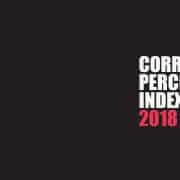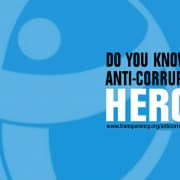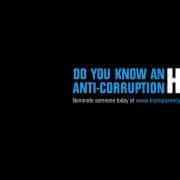|
Getting your Trinity Audio player ready...
|
11 July 2018
Dear African Union leaders,
Transparency International and its 28 chapters in Africa applaud the African Union (AU) for earmarking 11 July as African Anti-Corruption Day and dedicating 2018 to the fight against corruption.
The impact of corruption on the continent’s economic development is visible and cannot be underestimated. Corruption is not a victimless crime and often affects those who suffer most – vulnerable, poor and marginalised individuals.
Previously, the AU committed to combating corruption in Africa and ensuring a culture of good governance and rule of law. This commitment is embodied in a number of AU treaties, including:
- AU Convention to Prevent and Combat Corruption (AUCPCC), adopted in 2003.
- African Charter on Democracy, Elections and Governance, adopted in 2007.
- African Charter on the Values and Principles of Public Service and Administration, adopted in 2011.
- African Charter on the Values and Principles of Decentralization, Local Governance and Local Development, adopted in 2014.
Despite some clear collective commitments against corruption in Africa, the challenge remains enormous. By ratifying these treaties, African countries reinforced their commitment to democracy, human rights and the rule of law, as well as to the underlying values of transparency, integrity, participation and accountability.
Sadly, despite these efforts, and international commitments, such as the United Nations Convention against Corruption, corruption is and remains a significant threat and hindrance to African states, particularly in establishing democratic institutions and attaining sustainable development goals.
As such, Transparency International and its African chapters submit the following recommendations to the AU for its consideration.
The AU Convention to Prevent and Combat Corruption (AUCPCC)
The AUCPCC is a shared roadmap for states to implement governance and anti-corruption policies and systems on a national and regional level. The convention contains strong provisions that could go a long way in resolving corruption challenges across the continent. However, resolution is only feasible if individual countries adopt and implement these provisions nationally. Currently, only 38 of 54 member states ratified the AUCPCC. Yet, those that ratified have not reported progress on implementation. To this end, we recommend that the AU:
- Urge the remaining 17 countries that have not yet ratified this treaty, to take swift action to do so.
- Require countries already committed to the convention to publicly report their progress and hold their leaders accountable to implementation.
AU Advisory Board on Corruption
While we commend AU leaders and governments for promoting initiatives to fight corruption, we are very much concerned about the recent allegations of corruption made by former board member and former chairperson of the AU Advisory Board on Corruption (AUABC), Daniel Batidam. When he resigned on 8 June, Batidam cited instances of poor governance, including the abuse of entrusted power and lack of probity, accountability, transparency and integrity at the Secretariat of the AUABC and throughout various departments of the AU.
To address these allegations and give credence to the AU’s commitment to fight corruption, we recommend the following:
- The AU should form an independent and impartial investigation into allegations of corruption at the AUABC.
- Should wrong-doing be confirmed, all those who may be found culpable should receive appropriate institutional sanctions.
Procurement
In many African countries, the procurement of goods and services accounts for at least 30 per cent of national budgets. However, many countries lose money through the procurement process due to misappropriation of funds and corruption. This loss is estimated at an average of 25% of all resources dedicated to development. It is imperative that the AU pays close attention to procurement practices within the continent. As such, we recommend that the AU:
- Develop or endorse minimum standards and guidelines for transparent and accountable procurement.
- Set up and implement a community of practice dedicated to transparent and accountable procurement and the pursuit of value for money.
- Dedicate resources to procurement training and monitoring.
- Invest in research on the practice of procurement within Africa and continually and publicly monitor progress towards implementation of the minimum standards agreed.
Open contracting
Open contracting stimulates economic growth and strengthens procurement systems. The Open Contracting Data Standard (OCDS) and the Open Contracting Principles – established in 2014 – help facilitate the standardised disclosure of data, clarify documents applicable to the contracting process and allow for deeper and better analysis of data. To promote open contracting, we call on the AU to:
- Encourage and facilitate member governments to introduce open contracting through the adoption of the OCDS and Open Contracting Principles in all sectors.
- Introduce open contracting as the default procurement process of the AU.
Curbing illicit financial flows and recovering stolen assets
Illicit money leaving the continent reduces the amount of resources available to invest in jobs and provide critical social services to citizens in Africa. The continent is particularly susceptible to this issue due to an abundance of natural resources combined with a track record of poor governance.
Released in 2015, the High Level Panel on Illicit Financial Flows from Africa, chaired by former president Thabo Mbeki, found that the continent is losing over US$50-billion annually to illicit financial outflows. Today, these estimates are now US$90-billion. To stop the flow of illicit money, we call on the AU to:
- Urge governments to create, enhance and enforce legislation on corruption, financial crime and money laundering, including legislation on freezing, confiscation and seizure of the proceeds of corruption. This includes legislation that requires the identification of beneficial owners of companies doing business in Africa.
- Encourage governments to increase resources and training for law enforcement and supervisory personnel working on complex tax evasion, grand corruption and money laundering crimes and the recovery of stolen assets.
- Improve coordination and communication among law enforcement agencies both domestically and internationally. Develop an African database of public information on companies charged and penalised for corruption, financial crimes and money laundering.
Education and other key public services
Access to education, health services and justice are basic rights anchored in universal human rights treaties signed by most African countries and entrenched in national constitutions and laws. Yet, despite this, many Africans do not have access to quality education, good health services or judicial services.
Corruption in education can include procurement in construction of schools, “ghost” teachers and pupils, diversion of resources intended for textbooks and supplies, bribery and buying grades and fake diplomas, to name a few. Similarly, in the justice sector, the victims of corruption are often those seeking justice.
In the health sector, some medical workers accept bribes in exchange for providing basic health services. In some situations, bribes may mean the difference between life and death.
To address corruption in education, health and judicial systems, we call upon the AU to:
- Promote transparency and accountability in education, health and justice systems and end impunity for those convicted of corrupt practices.
- Create mechanisms to collect citizens’ complaints and strengthen whistleblower protection.
Beneficial ownership transparency
In 2016, Transparency International called on governments to disclose beneficial ownership as a way of ending the secrecy that enables corruption. Today, we reiterate those demands and call on the AU to:
- Publish timelines for establishing public registers, in open data format, containing beneficial ownership information.
- Require foreign companies operating in Africa to register and disclose their beneficial owners.
- Require bidders for public contracts to undergo due diligence procedures to verify the background of the company and its senior officers, majority shareholders and ultimate beneficial owners, as well as disclose the identity of beneficial owners.
- Require high-risk sectors, such as the real estate industry, to have anti-money laundering programme requirements, including customer due diligence and adequate record keeping.
- Ensure there are appropriate sanctions proportionate to the misconduct, including criminal prosecutions, for those found guilty of breaching these and related laws, and those found making false declarations.
Beyond 2018
The AU’s commitment to dedicating 2018 to the fight against corruption in Africa is a great step forward for the continent.
While we commend the AU for creating anti-corruption institutions and implementing measures, strategies and programmes to fight corruption throughout the region, the reality is that corruption persists despite these efforts. As such, we must continue the fight beyond 2018 and encourage Africans to reject corruption wherever they are.
We strongly believe, now more than ever, that the AU should move from slogans to actions. As such, we urge the AU to dedicate resources to tackle corruption in its member countries. This financial support will help strengthen existing anti-corruption systems and support civil society in eradicating corruption in our continent.








